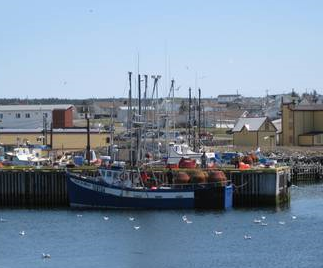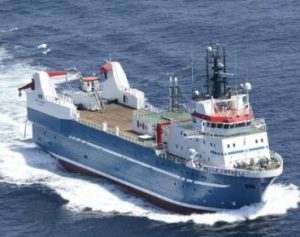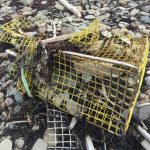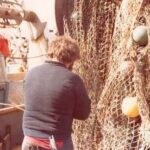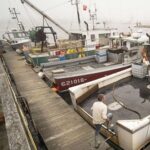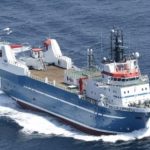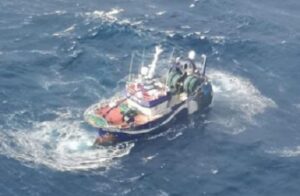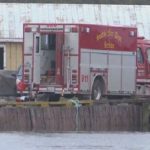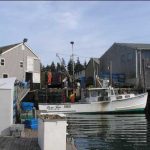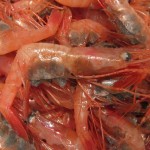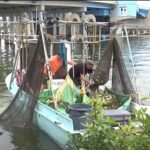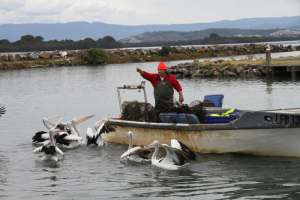Tag Archives: Dominic LeBlanc
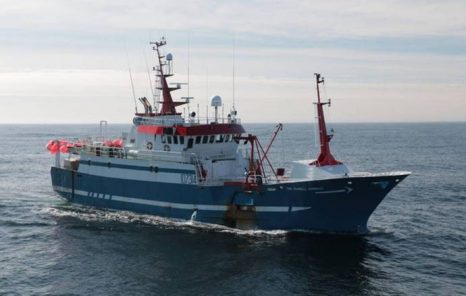
Lobster Fishing Area 41 – Clearwater Seafoods’ offshore lobster monopoly
Wedgeport lobster fisherman Lucien LeBlanc has watched the big blue Clearwater Seafoods trawler Randell Dominaux hauling lobster traps 80 kilometres off the southern tip of Nova Scotia — and looked on with envy. “If a genie popped up and I could get one wish, I’d like to have a zone all to myself. Not just to myself — I’d love to have it for LFA [lobster fishing area] 34. They have a large zone and they only use a miniscule amount of it,” LeBlanc said. The Clearwater trawler is working its side of what’s known as Lobster Fishing Area 41 — a vast area reserved exclusively for Clearwater in a lobster fishery unique in Canada. >click to read<09:10
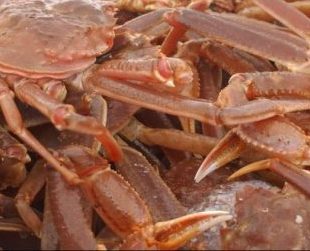
Speed limits, snow crab season changes coming to help save the whales
Ottawa is changing the dates of Canada’s snow crab season and establishing a permanent speed limit in the Gulf of St. Lawrence in hopes of protecting the highly endangered North Atlantic right whale.,, LeBlanc’s department is adjusting the dates of the snow crab season so it starts and ends earlier. The snow crab fishery will start as soon as possible, with the help of icebreakers and a hovercraft. The southern part of the Gulf, where most of the right whales were spotted last year, will be closed to fishing after April 28. >click to read<13:55
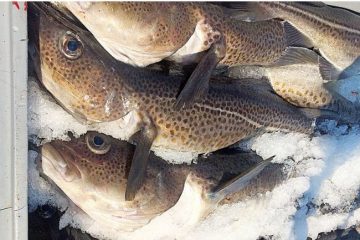
Fisheries Minister Leblanc to make decision on northern cod fishery in April, says seals are a big factor
With cod stocks again on the decline — by a shocking 30 per cent, according to the Department of Fisheries and Oceans (DFO) — the federal fisheries minister says a decision about the fishery will be made within two weeks. Dominic Leblanc said there are a series of factors at play, but one is the grey seal — an animal thought to cause as much as 50 per cent of natural deaths among full-size cod, according to DFO scientists. “There’s no doubt that the seals represent a significant challenge,”,,, >click to read<19:18
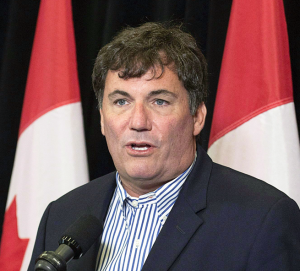
New criticism surrounds federal decision to break Arctic surf clam monopoly
One month after the federal fisheries minister announced a new licence for an important clam fishery would be awarded to a partnership of Indigenous groups from across Atlantic Canada, the government is facing fresh criticism over how it awarded the licence, and for the Liberals’ perceived ties to the winning bidder. The decision to award one-quarter of the Arctic surf clam quota to a partnership that included Indigenous communities was intended to further reconciliation by helping First Nations gain a foothold in a lucrative market and to break the monopoly on Arctic surf clams that has been held by Halifax-based Clearwater Seafoods. >click to read<10:10

‘This process was wrong’: N.L. fisheries minister says criticism of surf clams decision is building
Provincial Fisheries Minister Gerry Byrne says there were so many problems with the way a lucrative surf clam contract was awarded that the decision should be reversed. Byrne said it’s not just the government and Indigenous communities and nations in this province taking a stand. “Indigenous nations and communities from all over Atlantic Canada and Quebec seem to be taking a much stronger, much more vocal and negative reaction to not just the decision, but how the decision was taken,” the MHA for Corner Brook, said on Thursday. >click to read<13:24
Names of Indigenous groups who won coveted Arctic surf clam quota announced >click to read<
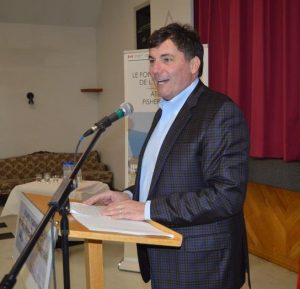
Federal fisheries minister refuses to reverse decision on surf clam licence
Federal Fisheries Minister Dominic LeBlanc has rejected calls to reverse his recent decision to award a multimillion-dollar Arctic surf clam fishing licence to a Nova Scotia company. LeBlanc says he understands there are hurt feelings among failed bidders, but he insisted the Cape Breton-based company and its Indigenous partners made the best case for Indigenous participation. The minister was responding to complaints from the Newfoundland and Labrador government and the Assembly of Nova Scotia Mi’kmaq chiefs. >click to read< 17:21
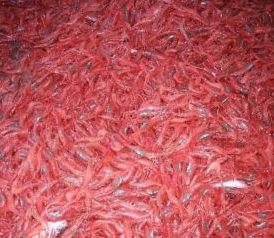
Minister should continue proportionate quota sharing approach with northern shrimp
An anticipated decrease in northern shrimp quotas in key shrimp fishing areas off Newfoundland and Labrador this year should result in the same proportionate quota sharing approach established last year, says the Canadian Association of Prawn Producers (CAPP). “Nobody likes to see a reduction in their quota, but in an area where the Total Allowable Catch (TAC) needs to be reduced, it is important that all fishers share these reductions in proportion to their share of the fishing quotas.” A major Northern Shrimp Advisory committee meeting is being held in Montreal today. >click to read<16:40
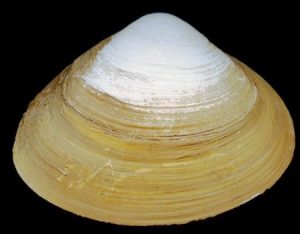
Indigenous leaders raise ‘serious questions’ about multimillion-dollar clam licence
A backlash is growing against a multimillion-dollar federal bid to promote reconciliation and economic development among Indigenous groups in Atlantic Canada and Quebec. A group that represents 13 Mi’kmaq First Nations in Nova Scotia issued a statement Friday saying it is joining politicians in Newfoundland and Labrador to demand Ottawa reverse its recent decision to award a lucrative Arctic surf clam fishing licence to a company based in Cape Breton that claims to have Indigenous partners in all five provinces.,,, “What we know to be true is that this is anything but reconciliation. This has pitted province against province, community against community, and First Nation against First Nation.” >click to read<12:36
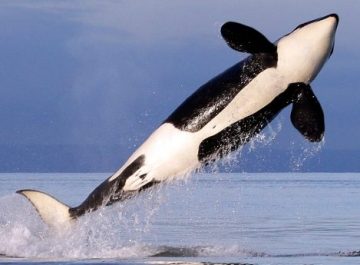
Conservationists want emergency order to save killer whales off B.C. coast
Several conservation groups say the federal government’s failure to issue an emergency order reducing threats to endangered orcas off the B.C. coast ahead of fishing and whale-watching season could mean the species’ extinction. The organizations say Fisheries Minister Dominic LeBlanc and Environment Minister Catherine McKenna had not recommended an emergency order to cabinet by March 1, which could have seen priority feeding refuges established, fishing restricted and speed reductions for commercial vessels put in place for the season. >click to read< 19:35
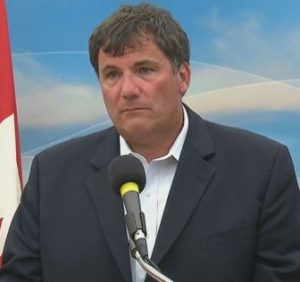
Newfoundland and Labrador calls on Ottawa to quash surf clam fishing licence
The Newfoundland and Labrador government is demanding Ottawa reverse its decision to award a lucrative Arctic surf clam fishing licence to a Nova Scotia company that says it has Indigenous partners from every Atlantic province and Quebec. Newfoundland Fisheries Minister Gerry Byrne says the Five Nations Clam Company does not have any Indigenous partners from Newfoundland and Labrador, despite a federal statement that claims otherwise. >click to read< 15:44

Outrage in Newfoundland as Indigenous groups get cut of Arctic surf clam fishery
Federal Fisheries Minister Dominic LeBlanc’s decision to cleave off 25 per cent of the lucrative Arctic surf clam fishery and give it to a newly formed consortium of Indigenous groups has blindsided those who have depended on the industry on Newfoundland’s Burin Peninsula for decades. “This is an unprecedented move,” Grand Bank Mayor Rex Matthews told CBC Radio’s The Broadcast. “To come in and expropriate 25 per cent of a quota that we’ve had for the last 27 years.” >click to read< 10:06

FISH-NL questions whether Ottawa purposely is out to eliminate inshore fishery and outports along with it
The Federation of Independent Sea Harvesters of Newfoundland and Labrador (FISH-NL) says Ottawa’s decision to award a new Arctic surf clam licence to East Coast aboriginal groups amounts to Indigenous reconciliation on the backs of inshore harvesters and rural communities.,, “Our inshore harvesters and rural communities should be at the head of the line for any new quotas,” says Ryan Cleary, President of FISH-NL. “Our harvesters are starving for fish, and the feds are taking from the few healthy stocks we have left, and carving them up for groups with no connection to the resource. That’s just wrong.” >click to read< 12:07
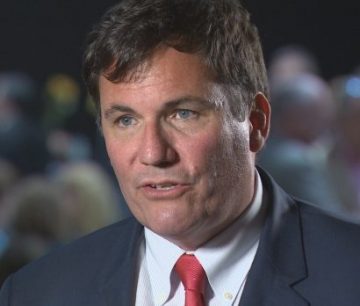
New Arctic Surf Clam license to benefit First Nations in Atlantic Canada and Quebec
Enhancing access to fisheries provides an opportunity to create social and economic benefits for coastal and Indigenous communities, and further promote economic prosperity for middle class Atlantic Canadians. Today, the Honourable Dominic LeBlanc, Minister of Fisheries, Oceans and the Canadian Coast Guard, announced that a new license for Arctic Surf Clam will be issued to the Five Nations Clam Company. This decision will significantly enhance Indigenous participation in the offshore fishery in Atlantic Canada. >click to read<19:29

FISH-NL: DFO outreach meetings prove FFAW-Unifor no longer voice of inshore harvesters
The Federation of Independent Sea Harvesters of Newfoundland and Labrador (FISH-NL) says the most common issue during a recent series of outreach meetings held around the province by the federal Department of Fisheries and Oceans is that the FFAW-Unifor is no longer the voice of inshore harvesters. “That sentiment was expressed at every single meeting — without exception — and with union representatives front and centre in the room,” says Ryan Cleary, President of FISH-NL. “The FFAW-Unifor no longer speaks for most harvesters, and that message should be loud, clear, and obvious to the entire fishing industry, including federal Minister Dominic LeBlanc.” >click to read< 09:27

Harvey Jarvis: Fishery proclamations much ado about nothing
For those who missed it, the week beginning Feb. 5th gave us a great example of how the media is used to convince us what a what a great job is being done. On day one we had a letter in The Telegram from the FFAW telling Dominic Leblanc what he should do (“Fishery corporations kick messaging into high gear,” Feb. 5), and the next day we had Dominic Leblanc standing at a podium telling everyone what he has done or is about to do. Then about 30 seconds later we had a press release from the FFAW patting itself on the back for another great win. I am referring, of course, to the news of how Dominic Leblanc is reversing some of Stephen Harper’s reforms plus making some changes to the Fisheries Act. >click to read< 08:31

FFAW, FISH-NL at odds over what Fisheries Act amendments will mean for N.L.’s inshore fishery
The federal Liberal Government said Tuesday it is restoring protections for the fishing industry that were taken away by the former Conservative government in 2012. And, in making the announcement, Fisheries and Oceans Minister Dominic LeBlanc said there is more good news for the country’s fishing industry. The minister announced $284.2 million to support the restoration of protections to fish and fish habitats and to incorporate new modern safeguards in the industry. >click to read< 09:32

Minister announces changes to federal fisheries act
Federal Fisheries and Oceans Minister Dominic LeBlanc announced today $284.2 million to support the restoration of protections to fish and fish habitats taken away by the former Conservative government in 2012, and to incorporating new modern safeguards in the industry. It was part of amendments to the Fisheries Act that LeBlanc outlined at a news conference in Vancouver. “To preserve, protect and help restore our environment we need a Fisheries Act that Canadians can trust,” LeBlanc stated. >click to read< 15:05 
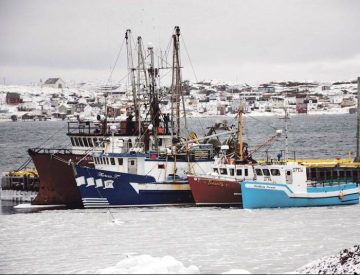
Letter: Fishery corporations kick messaging into high gear
As is evidenced from two recent articles in The Telegram (the letter, Jan. 23 “We need to enhance Atlantic Canada’s fisheries” and the Jan. 26 editorial “Fisheries madness”), the corporate-owned processing and offshore sector is in full fear-mongering and misrepresentation mode. Faced with a minister of Fisheries and Oceans who is willing to speak the truth about the challenges to the inshore fishery, the corporations that have aggressively endeavoured to shape the economics of this fishery for the past 20 years are now being told to play by the rules and they are enraged at the prospect.>click to read< 08:51
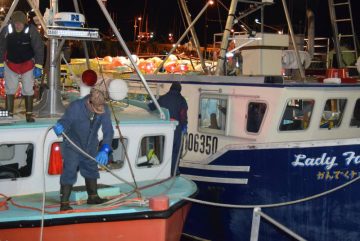
Editorial: Fisheries madness
The federal government seems hell-bent on proceeding with ill-advised amendments to the Fisheries Act that pose particular threat to Atlantic Canadian inshore fishermen and processors. The importance of the fishery cannot be overstated — directly responsible for 80,000 jobs and $6.6 billion in exports — while the indirect economic impact is much greater. Yet Ottawa is hinting at major changes — especially with licence allocation — that could turn the industry upside down. >click here to read< 10:49 

More changes to snow crab fishery not ruled out – minister wants any changes to be fair across all crab fleets
Government is still weighing its options when it comes to more changes to protect endangered North Atlantic right whales, says federal Fisheries Minister Dominic LeBlanc. Immediate rule changes to the crab fishery were announced Tuesday to help protect the whales. At least 17 died in Canadian and U.S. waters last year. Some died from being hit by ships and others from entanglements with fishing gear. Another right whale turned up dead Thursday in the waters off the coast of Virginia, the first to be reported this year. >click here to read< 22:38
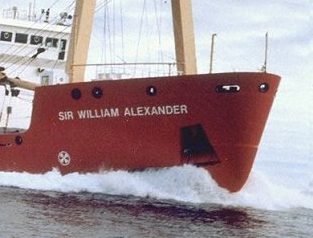
Fines for violating whale-protecting speed may be inadequate, says fisheries minister
Fisheries and Oceans Minister Dominic LeBlanc says he was “surprised” by the more than 500 reported speed limit violations in the Gulf of St. Lawrence last year and questions whether penalties should be stiffer to better protect North Atlantic right whales this year. “This is my own view, that a $6,000 fine may not represent an adequate sanction, it may not represent a sufficient deterrent,” said LeBlanc. ,,, As of late last week, only 14 of the 542 cases had resulted in a fine — all of them a minimum of $6,000, Transport Canada officials have said. >click here to read< 11:10

“We’re expecting 100 per cent compliance,” New snow crab fishing rules rein in use of ropes to protect North Atlantic right whales
Fisheries and Oceans Minister Dominic LeBlanc has announced four changes to the snow crab fishery in the southern Gulf of St. Lawrence to protect North Atlantic right whales from entanglement, including reducing the amount of rope floating on the surface and mandatory reporting of all lost gear. The new management measures will take effect immediately and will be enforced “very aggressively,” LeBlanc said during the news conference in Moncton on Tuesday. >click here to read<16:29
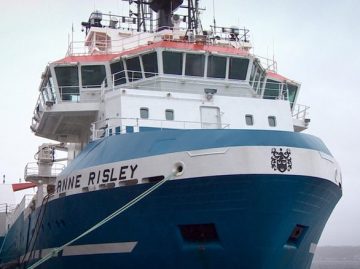
Bidders hungry for part of Arctic surf clam fishery after decades-long monopoly
The competition for newly available Arctic surf clam quota off Cape Breton has three times more applicants than previously reported, which is a sign of the interest in a fishery that has been controlled by a single company for decades. The Department of Fisheries and Oceans says it is evaluating nine proposals vying for 8,924 tonnes of surf clams in 2018. Until this year, the surf clam fishery was held entirely by Clearwater Seafoods,,, >click here to read<10:37

DFO minister: No compromise on independence of inshore fishery
Canada’s Minister of Fisheries and Oceans says there will be no backtracking on measures to preserve the independence of Atlantic Canada’s inshore fishery.”I’m not interested in weakening or diluting these policies,” Dominic LeBlanc told CBC News in a wide-ranging interview Tuesday. LeBlanc was responding for the first time to overtures from lobster buyers and plant owners in southwestern Nova Scotia who have floated schemes that would allow the companies ownership of a fisherman’s catch while somehow maintaining the independence of the fisherman.,,LeBlanc declined to discuss the impact on Atlantic Canada’s seafood exports to the United States in the event the Trump administration pulls out of the North American Free Trade Agreement. >click here to read<21:29 
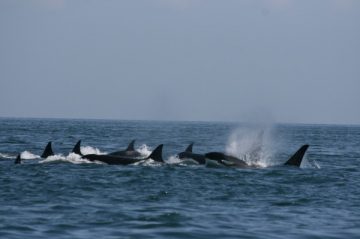
Study finds U.S. regulations to protect killer whales near B.C. coast effective
American regulations that limit vessel noise and traffic around endangered killer whales off the West Coast are working, a new study says. NOAA said in its review of regulations adopted in 2011 that the changes are benefiting southern resident orcas without having negative effects on the local whale watching and tourism industries. Regulatory changes implemented by the American government prevent vessels from going within 200 yards, or 182 metres, from the whales.,,, Canada’s Fisheries Minister Dominic LeBlanc said last fall that similar regulations will be in place before the spring,,, click here to read the story 14:45

Canada is investing in science to protect our waters from oil spills
The Government of Canada is committed to keeping our marine and coastal areas clean and safe for the benefit of current and future generations. That is why we are taking concrete action, under the Oceans Protection Plan, to protect our marine and coastal areas from potential oil spills. Today, the Honourable Scott Brison, President of the Treasury Board and Member of Parliament for Kings-Hants announced on behalf of the Honourable Dominic LeBlanc, Minister of Fisheries, Oceans and the Canadian Coast Guard, more than $80 million in new science funding for new partnerships, improved knowledge and new technologies that will help mitigate and prevent marine incidents such as oil spills. Why not stop drilling then? click here to read the press release 15:47
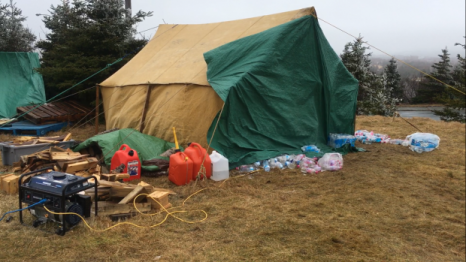
Department of Fisheries and Oceans installs security office, excavates hill where hunger strike held last spring
The hill is alive with the sound of an excavator at the start of the road leading to the Department of Fisheries and Oceans (DFO) headquarters in St. John’s where Twillingate fisherman Richard Gillett held an 11-day hunger strike in April. The site where Gillett pitched his tent is all mud now. According to a statement from DFO, the excavation and the security office are part of new security and safety protocols being implemented at the facility.,, Gillett’s hunger strike started on April 13 and his supporters caused a bit of disruption at times for people trying to enter and leave the facility. But that wasn’t the only protest action by fishermen in the spring that caused some concern for DFO officials. click here to read the story 21:08
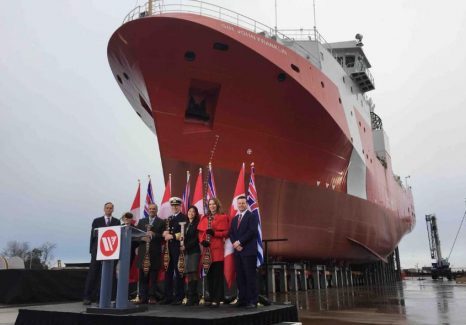
Seaspan launches Canadian Coast Guard’s first Offshore Fisheries Science Vessel
The first large vessel to be designed and built under the Canadian National Shipbuilding Strategy (NSS) was launched at Seaspan Shipyards on December 8. ‘Sir John Franklin’ is the first of three offshore fisheries science vessels (OFSV) which will be operated by the Canadian Coast Guard. In 2011, the government of Canada selected Seaspan to be its non-combat shipbuilder as part of the NSS program. click here to read the story 09:44






